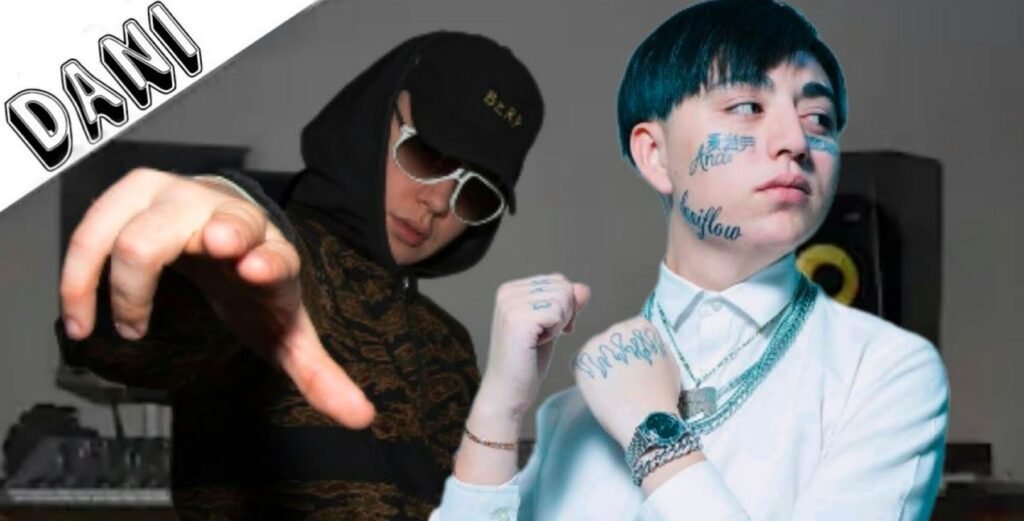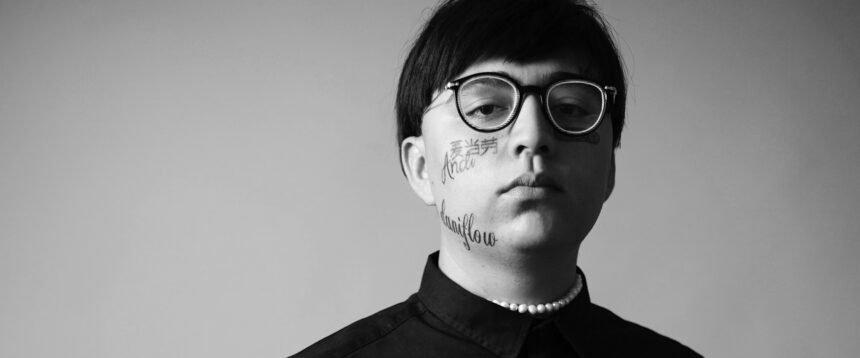Dani Flow In recent years, the Latin American music scene has experienced an explosion of fresh talent, and among the most notable figures is Dani Flow. Known for his energetic style, controversial lyrics, and bold presence, Dani Flow has quickly become one of the standout artists in the Mexican rap and reggaeton community. His music resonates with a generation that values authenticity, humor, and raw emotion, while also challenging traditional norms of what rap music should sound like in Spanish-speaking cultures.
Born in Mexico, Dani Flow (real name Daniel) didn’t always have a straightforward path into the music industry. Like many emerging artists, he started from humble beginnings, using social media platforms such as YouTube and TikTok to showcase his talent. It was his unique blend of satirical storytelling and infectious beats that quickly gained attention, and soon, Dani Flow he was accumulating millions of views and followers. His rise has been meteoric, fueled by viral tracks and a fan base that celebrates his unfiltered approach to music and life.
The Evolution of Dani Flow’s Music Style
Dani Flow’s sound can be described as a fusion of reggaeton, trap, and hip-hop, but what truly sets him apart is his lyrical boldness and humorous delivery. His songs often explore themes of sexuality, partying, and street life, but they are presented in a way that mixes self-awareness with comedic exaggeration. This unique voice has earned him the title of the “most irreverent rapper in Mexico” by many of his fans.
Musically, Dani Flow leans into the rhythms of perreo and trap, using heavy bass lines and catchy hooks to drive his tracks. He embraces the genre’s traditional roots while adding a distinct personality that reflects his Mexican identity. As his music has evolved, so has his production quality, with collaborations involving notable producers and artists across the Latin urban music landscape.

While some critics argue that his lyrics are too explicit or lack depth, Dani Flow counters that music is a reflection of life in all its aspects—including the gritty, the funny, and the taboo. For him, music is an escape and a performance, and this perspective resonates deeply with younger audiences tired of filtered and commercialized content.
Cultural Impact and Public Persona
Dani Flow’s impact goes beyond his music. He has become a cultural figure who represents a new wave of Mexican artists unafraid to push boundaries. His fashion sense, online persona, and public interviews all contribute to a brand that is both provocative and relatable. He frequently interacts with fans on social media, using humor and raw honesty to maintain a strong and loyal following.
Part of his appeal is his refusal to conform. Whether it’s his tattoos, his outspoken opinions, or his unapologetic celebration of sexual freedom, Dani Flow stands out in a landscape where many artists choose to play it safe. His concerts are vibrant, energetic experiences, often blurring the line between party and performance. This chaotic, joyful spirit has earned him a reputation as an entertainer as well as a musician.
Moreover, Dani Flow is helping to redefine masculinity in Latin urban music. While many male artists in the genre still rely on hyper-macho posturing, Dani Flow embraces a more playful and ironic approach. His willingness to joke about himself, highlight absurdity in everyday situations, and challenge gender stereotypes has struck a chord with fans looking for more authenticity and diversity in representation.

Controversies and Criticisms
Like many artists who push the envelope, Dani Flow has not been immune to controversy. His explicit content and unfiltered lyrics have sparked debates among critics and audiences. Some have labeled his music as vulgar or even damaging to the public image of Mexican music. Others accuse him of glorifying a hedonistic lifestyle without considering the social consequences.
Dani Flow, however, often responds to such criticism by emphasizing the satirical nature of his art. He views his songs as exaggerated reflections of modern culture, meant to entertain rather than preach. In interviews, he has stated that his work is not meant to be taken literally but rather seen as a commentary on how people consume entertainment.
In this light, many fans defend Dani Flow by pointing out that his art exists in a tradition of parody and social satire. They argue that he is simply using humor and shock value as tools to open conversations and break down taboos, particularly in a region where conservatism still holds significant cultural influence.
Future Prospects and Career Development
As of now, Dani Flow continues to ride the wave of his success with a stream of new releases, tours, and collaborations. He remains a prolific artist, dropping singles and videos with impressive frequency. His adaptability and awareness of internet culture give him an edge in staying relevant in a fast-moving industry.
His collaborations with other artists—both mainstream and underground—show a growing interest in expanding his reach and evolving his sound. These musical partnerships allow him to experiment with new styles while maintaining the core identity that made him famous. There are signs that Dani Flow is not only an entertainer but also a savvy entrepreneur, capable of managing his brand in a highly competitive market.

With increasing recognition across Latin America and among Spanish-speaking communities worldwide, Dani Flow seems poised to further solidify his place as a leading figure in urban Latin music. If he continues to balance controversy with charisma, and satire with sincerity, there’s little doubt that his influence will continue to grow.
Conclusion
Dani Flow is a product of the internet age—a self-made artist who used humor, authenticity, and digital platforms to break into the music scene. His rise to fame illustrates how cultural norms are shifting, especially among younger audiences hungry for entertainment that feels real and relatable. Love him or hate him, Dani Flow has made a significant mark on Mexican music culture by challenging expectations and expanding the boundaries of what rap and reggaeton can express.





